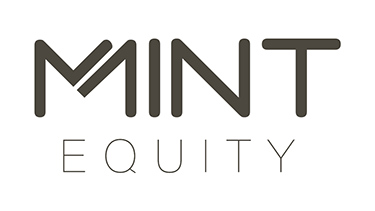Investors in Australia may not be aware of the new proposals outlined in the 2021–22 Budget Update – Mid-Year Fiscal and Economic Review and the attempt of the Queensland government to reform the tax system to make it “fairer” for everyone. We take a look at what the proposal means to investors, both in Queensland and interstate, the impact on individuals and what the implications of these tax changes could be.
What are the proposed changes?
Under the previous tax policy, property investors who have properties across multiple states could access tax-free or discounted thresholds in each state. However, under the reforms proposed by the Queensland government, there will be a double tax for investors who already pay land tax in other states based on the value of their property across the country.
According to the announcement, “By amending the current land tax arrangements to account for the value of land held interstate when assessing taxpayers’ land tax liability, additional land tax will only apply to the taxable Queensland landholdings of individuals who own land in multiple jurisdictions."
Under the current system, an interstate investor can leverage the current tax-free threshold for land holdings up to a land value of $600,000. Under the reformed tax system, investors would see a notational land tax value calculated for real estate assets in every state and territory, which would then determine the land tax bill for the Queensland proportion of the portfolio.
For example, if the investor holds a property in Queensland with a land value of $600,000 and a property in New South Wales with a land value of $400,000, the values would be added together to calculate the land tax paid on the Queensland property, even if both properties are under the tax-free threshold for land lax.
With the new approach, the interstate investor will now be charged with a $2,700 land tax in Queensland, rather than $0.
The Queensland government confirmed that the change will not affect investors who only own land in Queensland.
Land tax double dipping likely to increase rents
The policy aims to close a previous 'loophole' that saw property investors benefitting from having properties in multiple states. This property tax hike will consider the value of an investor's properties outside of Queensland in order to determine the land tax bill for investments locally. There has been backlash from the Queensland real estate sector, who fear that the policy may deter investors and cause rent hikes for tenants. It could also increase the holding costs of existing investors, so it is important to make sure you fully understand the reforms before they are introduced.
How and when are land values calculated?
Land value is calculated by the Valuer General using a mass valuation process chosen by the New South Wales government with a range of considerations and assumptions. The amount of land tax you pay will be calculated based on the amount of land you own at midnight on 30th June and values are determined on 1st July.
Not all local government areas are valued at the same time. For example, the Noosa LGA of Queensland was last valued in 2019, and the Whitsunday regional council area was valued in March 2021. This means some local or regional areas land values may increase, decrease or remain stable at different times of the year.
There are a number of different factors the government considers when it comes to valuing land including;
most valuable use
zoning, heritage restrictions or other use constraints
size, shape and features
location and views
nearby development and infrastructure
For an official valuation of your land, you will receive a notice of valuation when your local council receives new values which happen around every three years.
Land values are used to calculate;
Local government rates
State land tax
State land rental for lease hold land
Find your land valuation
When is land tax payable in Queensland?
Land tax in Queensland is payable if the total taxable value of your freehold land is $600,000 or more and for companies, the threshold is a land value of $350,000 or more. The term owner also applies if you are entitled to rents and profits from the land or have a legal entitlement to the land who has possession. You will get an annual assessment notice which informs you how much you have to pay and when to pay, which will usually be available from August.
Tax implications for individuals
If you usually reside in Australia — or you're a permanent visa holder or Australian citizen working, living or travelling overseas — the land tax rates for individuals will apply to the land you own. As an individual, you will be liable for land tax if the total taxable value of your freehold land is $600,000 or more on 30th June. As investment property costs rise, the proposal could potentially result in higher rents for tenants as landlords will be paying more tax. You will need to pay land tax on land where the total value exceeds the current land tax threshold and it applies to commercial properties, holiday homes, investment properties and more.
Exemptions from the new policy
There are also a number of exemptions that apply to investors, and you can lodge an objection if you disagree with the land valuation you have been given during the assessment. Any land you own as a trustee will be assessed separately and you can apply for exemptions to lower the total taxable value of your land. In general, you don't need to pay land tax on your principal place of residence or on land that is used for primary production. If you only own land in Queensland you won't be affected by this policy, however, interstate investors will experience a significant tax rise.
Further reading
Queensland 2021–22 Budget Update – Mid-Year Fiscal and Economic Review (refer to page 25)
Queensland To Impose New Tax Rules For Interstate Investors
Queensland government slugs interstate property investors with 'new land tax'


